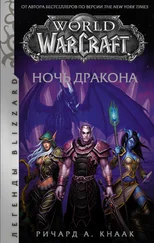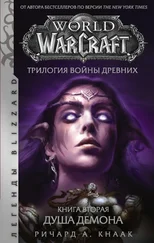“I? I only influenced the situation. You are the one who brought Achilios back, Mendeln. Your gift and your link to the realm of afterdeath are what enabled him to return.”
Rather than begin an old argument over, Mendeln left the shadowy figure behind. Rathma did not call after him, and the human, aware of his mentor’s ways, knew that the Ancient had already melted into the shadows.
Neither of them had uttered what both suspected concerning Achilios’s disappearance. The one time in the past when they had discussed the possibility, Mendeln had nearly lost all heart. What point was there in trying to change the world, if the world was soon to be no more?
It was all too obvious to Uldyssian’s brother what had happened to the hunter. Rathma had detected no demonic traces in the vicinity of Achilios’s last known location. The absolute absence of any such trace could mean only two things. One was that Inarius had seized Achilios for some plot against them, a dire notion indeed. Yet, as terrible as that might be—especially to Serenthia—there was a second scenario that made the first welcome by comparison.
What if another angel had stolen away the hunter?
They all knew what that meant. The Burning Hells were already aware of Sanctuary and had been so for centuries. They had let it survive because of their interest in the potential of using humans as a turning point in the eternal war. The Temple of the Triune had been created by the demon lords—the Prime Evils—in order to bring Mendeln’s race into the fold. Had not Inarius taken personal umbrage at their act—seeing Sanctuary and all in it as his—humanity might even now be marching into battle against the angels.
But now, if the High Heavens did know of the world, they were sure either to fight to possess it or simply to destroy it so that it could not be of use to the demons. That thousands of lives would perish was not of interest to either side.
It is essential that we find Achilios, Mendeln determined as he reached the edge of the encampment. For all our sakes, it is essential!
His thoughts were violently interrupted by an invisible force against which he collided. As he rubbed his nose, two figures appeared—one with the swarthy skin of a lowlander, the other as pale as any Ascenian tended to look next to one of the locals. Mendeln recognized the second as one of the dwindling number of Parthans, Uldyssian’s first converts. There were perhaps a little more than a hundred of them left, where once there had been many times that number. Being among the earliest of his brother’s followers, the Parthans had, unfortunately, faced monstrous dangers before having the chance to truly begin to come into their powers.
“Ah! Forgive us, Master Mendeln!” blurted the Parthan. “We couldn’t know it were you!”
The other edyrem nodded nervously in agreement. Whether from the lowland jungles or the highland forests, nearly all of Uldyssian’s flock treated Mendeln with a combination of veneration and fear. The fear came from Mendeln’s calling, which dealt much with the dead. The veneration…well, he was wise enough to understand that it originated simply from the fact that he was their leader’s sibling.
Oddly, a small handful had begun to come to him for learning, but Mendeln did not set any store by their interest. They were just morbidly fascinated by certain aspects…at least, that was what he told himself.
“You need not apologize,” he told the pair. “I left without giving word. You did as you were commanded.”
They opened the way for Mendeln, watching with some visible relief as Mendeln passed. He pretended not to notice.
And, as if by passing the guards, the younger son of Diomedes had entered a new realm, suddenly the area around him was filled with magic. Colored spheres of energy dotted the vast camp, as if arranged for some festival. Yet none of them was secured by string, but rather floated above those who had cast them. There were still fires, but mainly for cooking, not for illumination.
But the spheres were not all. As Mendeln strode through the throngs, a continual array of magical displays caught his gaze. One swarthy lowlander had created a glowing stream of energy that entwined around itself like a serpent. Another edyrem levitated a number of small stones, then proceeded to have them move around as if in the hands of an invisible juggler. A fair-haired Parthan woman created a spear from empty air, which she threw with perfect accuracy at a distant tree. The spear hung embedded for a moment, then dissipated as she forged a new one.
These were but a few examples. The many spells cast by the edyrem varied in power and skill, but that the seemingly insignificant faces around him—faces drawn from all castes and occupations—were those of people mastering what had once been available only to a select few was both astounding and troubling to Mendeln. Common folk such as himself were supposed to live out their lives toiling in the field. They were not supposed to become powerful sorcerers.
And that was what troubled him, even as he watched one inventive youth create for his smaller siblings—yes, Uldyssian’s “army” even included children—bright butterflies that flew in a dozen different directions. In some ways, many of those who followed his brother were naïve about the potential they wielded. At best, they saw it as a tool, like a hoe, not as something that could possibly either turn on them or brutally maim one of their own.
Perhaps I am being too harsh, Mendeln considered. They have fought for what they believe in and have been forced to slay those who would make them their slaves and puppets.
Yet his misgivings did not go away. Despite everything, Mendeln felt magic was something that needed to be studied carefully and used with the utmost consideration. One had to grow into its use and learn to respect its dangers.
Then, ahead, there arose a soft, comforting blue glow. Mendeln hesitated but finally stepped toward it. He had no reason to fear the source. After all, it was only Uldyssian.
Even amidst so much magic, one could feel his brother’s presence. A large group of edyrem sat or stood in a circle around the area Uldyssian had chosen for his bed. Mendeln could not see his brother, but he could sense exactly where Uldyssian was. Without hesitation, the younger sibling strode into the crowd, which immediately took notice of his presence and began to open a path for him.
And barely had Mendeln made it halfway when at last he caught sight of Uldyssian.
The sandy-haired figure had the strong build and looks of a country farmer, which, of course, Uldyssian had been. Quite good at it, too. Broad-shouldered and square-jawed, with a short, trimmed beard, the elder sibling was handsome in a rough-hewn way, and that helped him appeal to others. He did not look in the least like one of the haughty priests or fiery prophets with whom most of his followers were familiar. He was one of them, the common folk. He had prospered, and he had suffered, his greatest loss that of all his family save Mendeln years before to plague. At that time, Uldyssian had turned from one missionary to the next, seeking salvation for his loved ones and receiving nothing but empty words and suggestions of donations. That tragedy had given him a fierce hatred for sects such as the Triune and the Cathedral even before both had gone hunting for him.
Uldyssian sat atop a log, talking earnestly to all. Mendeln did not have to listen to know that Uldyssian was speaking words of encouragement to his flock, explaining what walking his path meant. His words all had great merit, but too often, Mendeln’s brother did not follow them himself. Of late, Uldyssian had been letting his incredible abilities take command of him, not the other way around.
Читать дальше

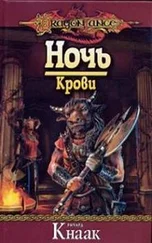
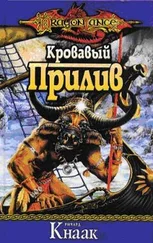
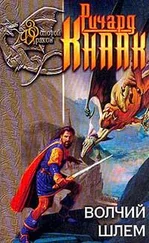


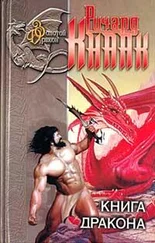
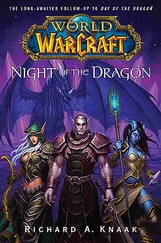
![Ричард Кнаак - Душа Демона [litres]](/books/394377/richard-knaak-dusha-demona-litres-thumb.webp)
![Ричард Кнаак - Ярость бури [litres]](/books/395772/richard-knaak-yarost-buri-litres-thumb.webp)
![Ричард Кнаак - Право крови [litres]](/books/436324/richard-knaak-pravo-krovi-litres-thumb.webp)
